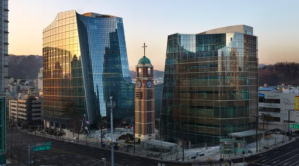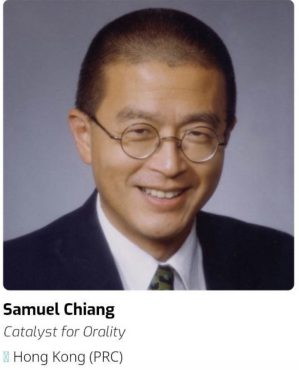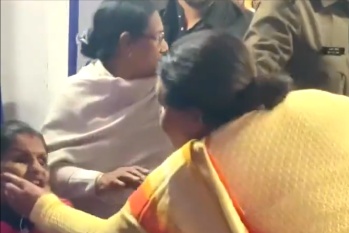
The Christian Council of Korea (CCK), a former national member body of the World Evangelical Alliance (WEA), has issued a statement on Jan. 17 raising concerns about the planned WEA General Assembly (GA) in Seoul, Korea this October. It challenges Sarang Church, which is due to host the global event at its facilities, to be transparent about the financial support it provides to the WEA. The statement also highlighted questions that emerged related to the background of WEA Deputy Secretary General Rev. Samuel Chiang, a key leader in the preparations of the upcoming GA, whom CCK calls on to resign.
The recent statement is the latest in a growing series of public criticism in Korea that was triggered last November when WEA announced plans to hold its next GA in the same country that last year hosted the Fourth Lausanne Congress for World Evangelism.
“Sarang Church appears to be continuing financial support for the World Evangelical Alliance (WEA), despite ongoing allegations against its leadership related to religious pluralism, syncretism, the New Apostolic Reformation, and accusations of family destruction caused by ‘narcissists’ in key positions,” the CCK statement says, referring to concerns raised in several of its earlier statements.
“By remaining silent on these issues while rushing to provide financial support, the church risks being perceived as having ulterior motives.”
CCK then points to what it describes as “persistent rumors” about “some Korean pastors” who may allegedly seek to use the opportunity of providing funds to the WEA to gain positions for themselves within the organization.
“Hastily deciding on financial support without addressing or clarifying these allegations gives the impression that securing positions within the organization is the true intent,” it warns, emphasizing the importance of full transparency.
CCK then raised questions about Samuel Chiang, which it describes as a “key figure linking WEA to Sarang Church.” The statement points to the reference to “Hong Kong (PRC)” on Chiang’s former leadership profile on the Lausanne Movement’s website, where he served as Catalyst for Orality, which according to CCK raised “significant concerns about his background and identity.”

The unusual addition of (PRC) appears unique in its emphasis of the political affiliation with the People’s Republic of China compared to the more common Hong Kong (SAR), which stands for Special Administrative Region, or simply Hong Kong, both of which have been used by other Lausanne leaders on their profiles.
CCK also highlighted Chiang’s participation in a WEA delegation that visited China in July 2024 that did not include the “customary meetings with leaders of house churches” but “only with officials from state-approved Three-Self Churches and Chinese government representatives.”
Additionally, CCK raised similar concerns about Chiang’s meeting with a Muslim leader on Feb. 16, 2024, that a statement by 1,300 Korean church leaders pointed to earlier last week, which CCK says was “widely criticized for its pro-Islamic overtones.”
Finally, the statement calls on Sarang to “provide transparent explanations to the Korean church community regarding the numerous issues raised about WEA.”
“Failure to do so and focusing solely on financial contributions will expose the church to criticism for recklessly using its public funds to support individuals and organizations shrouded in allegations of religious pluralism and heresy,” it concluded.
As in all previous reporting, Christian Daily International has again approached WEA to see if they would comment on any of the current or past concerns raised by CCK and other groups over the past three months but has so far not received any response. Current and past articles will be updated if and when the WEA responds to CDI's questions.
Below is the full statement by CCK (translated from the original version in Korean):
Pro-Islam and Pro-China WEA Deputy Secretary-General Samuel Chiang Must Step Down
Sarang Church appears to be continuing financial support for the World Evangelical Alliance (WEA), despite ongoing allegations against its leadership related to religious pluralism, syncretism, the New Apostolic Reformation, and accusations of family destruction caused by “narcissists” in key positions. By remaining silent on these issues while rushing to provide financial support, the church risks being perceived as having ulterior motives.
One persistent rumor suggests that “some Korean pastors are aiming to secure positions within WEA through the hosting of the WEA Seoul General Assembly.” Individuals facing allegations continue to hold influential decision-making positions in WEA. Hastily deciding on financial support without addressing or clarifying these allegations gives the impression that securing positions within the organization is the true intent. Such behavior mirrors the classic “selling of official positions” and must be approached with extreme caution.
Additionally, Samuel E. Chiang, WEA Deputy Secretary-General, has been identified as a key figure linking WEA to Sarang Church. Despite having only 2–3 years of substantial service experience within WEA, Chiang was appointed to his role by former WEA General Secretary Thomas Schirrmacher, who resigned amidst accusations of religious pluralism and syncretism.
More troubling is the fact that Chiang’s nationality was originally listed as PRC (People’s Republic of China) before being deleted, raising significant concerns about his background and identity.
Chiang faced internal criticism after leading a WEA delegation to China, where he canceled the customary meetings with leaders of house churches and instead met only with officials from state-approved Three-Self Churches and Chinese government representatives. Additionally, on February 29, 2024, Chiang visited Abu Dhabi and met with the Secretary-General of the Muslim Council of Elders, emphasizing the importance of interfaith cooperation—a move widely criticized for its pro-Islamic overtones.
To address the allegations of religious pluralism and syncretism surrounding WEA, it is imperative that Samuel Chiang, a figure accused of pro-Islamic and pro-China bias, resigns. Sarang Church must sever ties with Chiang and provide transparent explanations to the Korean church community regarding the numerous issues raised about WEA.
Failure to do so and focusing solely on financial contributions will expose the church to criticism for recklessly using its public funds to support individuals and organizations shrouded in allegations of religious pluralism and heresy.





